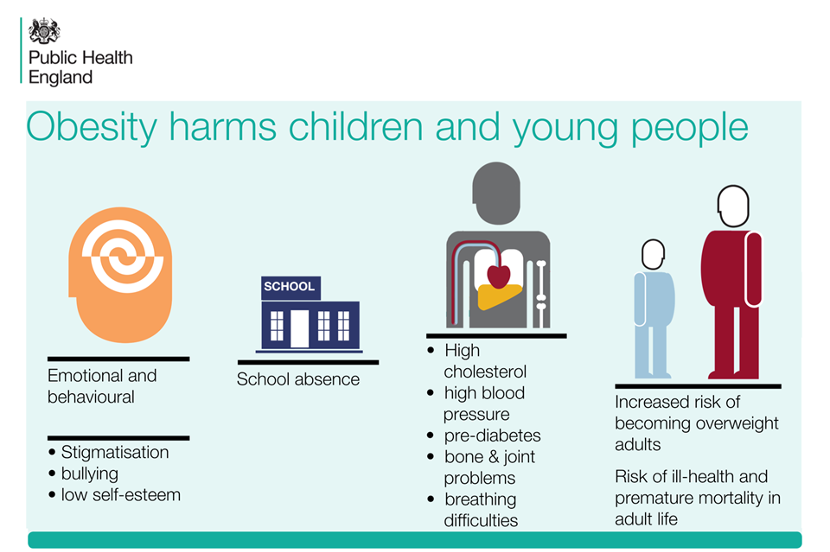Public Health England’s innovative approach to preventing diabetes using new behavioural change techniques combined with digital technologies can be tailored to tackle the rapidly increasing rates of diabetes in the Middle East, in response to the health needs of individual families in the region.
All over the world, rates of diabetes are increasing rapidly. The Middle East and North Africa region (MENA) in particular has experienced an alarming growth in the number of cases over the past 20 years. In the UK, where 90 per cent of diabetes cases are type 2, major digital innovations have been introduced by Public Health England (PHE) to support the treatment, diagnosis and prevention of the condition – including digital interventions promoting behaviour change. With the risk of developing type 2 diabetes linked with obesity, and potentially preventable or manageable by lifestyle changes, these pioneering technologies are paving the way for a new model of preventative care for the Middle East.
The Middle East has the highest global ratio of obesity among adults, with between 27 per cent and 40 per cent of the total population affected.
The increasing numbers of people living with obesity is challenging. Globally, health officials are grappling with the burden on services trying to support people who are struggling with obesity, helping to prevent cases of related health conditions such as type 2 diabetes, musculoskeletal and cardiovascular complications, and mental health problems. Obesity is believed to account for 80-85 per cent of the risk of developing type 2 diabetes.
Like the rest of the world, this burden is being increasingly felt in the Gulf nations, where levels of obesity amongst men and women have been steadily increasing over the last two decades. A 2018 report by Colliers International – part of the Arab Health Market Series – forecasts that the economic burden of diabetes in the region will rise by 67 per cent to US$ 35.5 billion by 2045.
In the UK – where the Office for National Statistics estimates that 1.2 million lives are lost each year due to obesity-related illnesses – doctors, scientists and health marketing experts at PHE have begun to explore how blending changes in the physical environment, urban infrastructure and food types combined with clever digital tools aimed at shifting behavioural choices can have an impact on tackling the obesity epidemic. Similarly, adoption of preventative health technology has been a priority in the MENA region, allowing it to leapfrog over the mistakes made by other health authorities and providers in other parts of the world, addressing the burden of obesity and type 2 diabetes.
PHE has been working with governments across the Gulf region and has in the last year worked successfully with the Kingdom of Saudi Arabia’s Ministry of Health to consider ways it can share this learning and expertise to help promote and raise awareness about changing lifestyle habits. This includes top tips on improving diet and forming better exercise habits to counter the growth of diabetes amongst its populations. More recently, PHE has formalised a relationship with the Abu Dhabi Public Health Centre with the aim of sharing experiences and learning in the context of non-communicable disease.
Dynamic approach to diabetes
Tackling levels of obesity is a key priority across Government health agencies and the NHS in the UK, where the national target is to reduce childhood obesity and associated harms by half by 2030.
Existing healthy weight management face-to-face services are well received by families and support behaviour change when families engage and participate. However, such services are not available across all local authority areas in England, and those services on offer sometimes do not reach all the target families.
This is an area where a digital approach can provide families with an option to explore behaviour change and to do this at scale and in a way that works with face-to-face services and empowers people to engage with and access support. UK technology innovations, from online tools to wearable devices, is opening new opportunities to monitor our health, identify problems earlier and reach people with tailored advice and support. Moreover, the expanding role of technology in public health goes hand-in-hand with advances in how personal data is collected, combined, analysed, and utilised for different population groups.
Previously, the national campaign Change4Life combined digital tools and marketing to communicate information on how to make healthier activity and food choices, which had positive results. For example, 42 per cent of respondents reported that they had made a switch to a low sugar product as a direct result of the campaign in a follow-up survey. Additionally, PHE has successfully delivered activity campaigns for children in the last few years with commercial partners such as Disney and their innovative online ‘10 Minute Shake Up’ summer campaign for children.
Now PHE is pioneering a dynamic digital approach via a new app, ‘Our Family Health’, which brings together digitally-driven predictive prevention, kitemarked by the NHS and PHE that encourages healthier food options.
PHE has taken a combined approach by seamlessly integrating expertise in healthy eating, healthy weight management and behavioural science to develop a digital approach to preventative self-care with a focus on the end-user. This approach could sit alongside the myriad of apps and websites families now use in their everyday lives for work and provide a digital option for those families who wouldn’t ordinarily use a face-to-face service.
The app developers and PHE’s Diet, Obesity and Physical Activity team spent time with parents and children nearly every week over the development phase. This allowed them to better understand lifestyles, motivations and challenges, to shape and prototype an approach that is designed to work for its target audience that can support families on their ‘healthy weight journey’.
The concept is underpinned by behavioural change data, which guides the information and approaches to the end-user and sets tailored goals at the right time to those who need it. The fundamental principle at the heart of the design is a focus on improving and maintaining family health, not weight per se.
Key features, explored with families, include ways to support access to information from trusted sources. This includes information on how to set goals one step at a time, a dashboard that shows progress towards achieving each goal, access to a community of peers that can be used for support and encouragement at any time and information highlighting relevant local activities. The concept has also explored how to produce a safe, creative and engaging space for children through gamification techniques.
PHE’s effort in this area has helped to identify a gap in meeting each family’s individual needs when it comes to supporting and encouraging whole family behaviour change. PHE will continue to press ahead with the development phase of Our Family Health and work with local authorities to explore how it can support families living in some of the most deprived areas in England, associated with high childhood obesity rates.
The team also hopes to work in close collaboration with our peers and partner with experts in the Middle East to share learning, knowledge and expertise as we work to combat the common challenge of rising obesity levels. This is key to evolving innovative ways to enable populations to improve their health and overall well-being.
With the number of diabetic patients in the MENA region expected to increase by 110 per cent to 82 million in the next 25 years, the need for effective prevention strategies has never been greater.

Shadi Abu-Hayyeh


